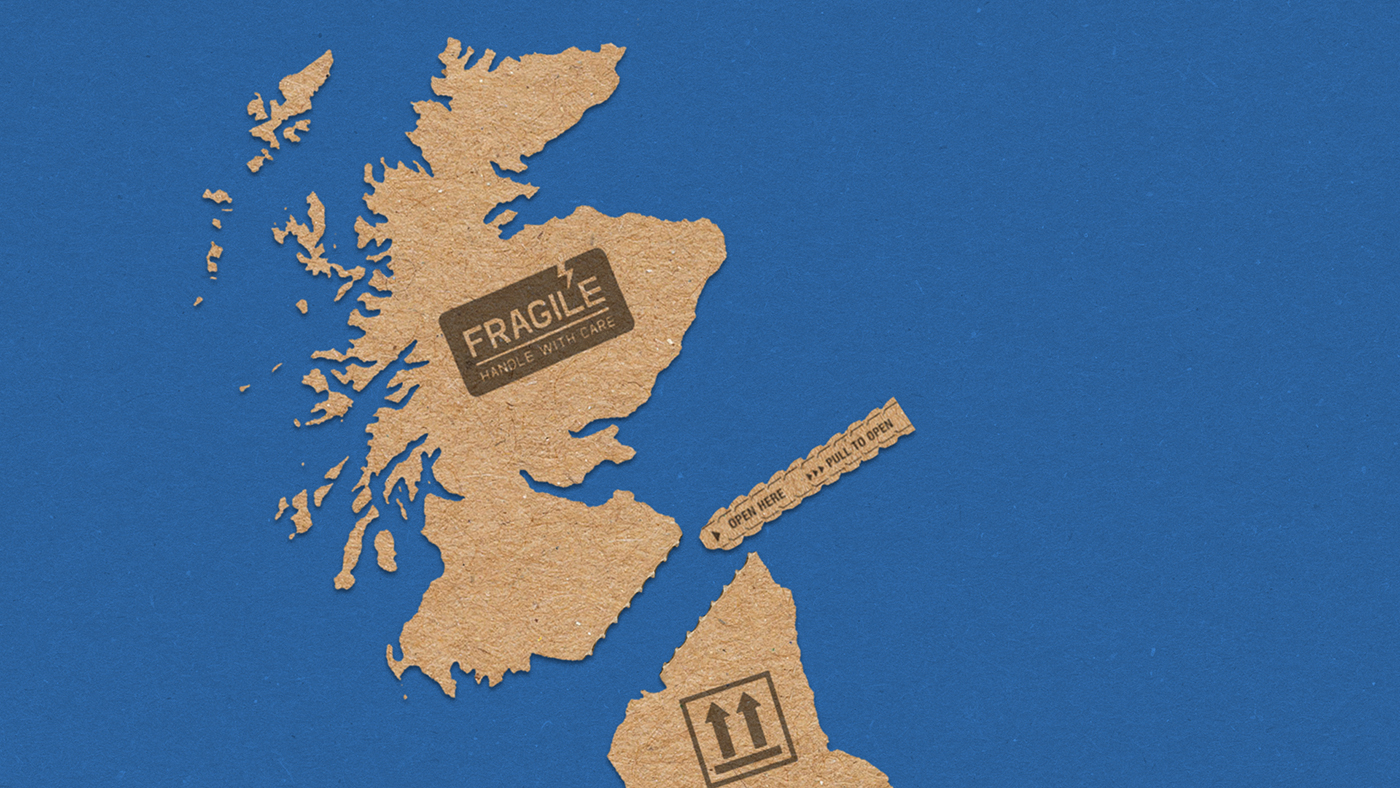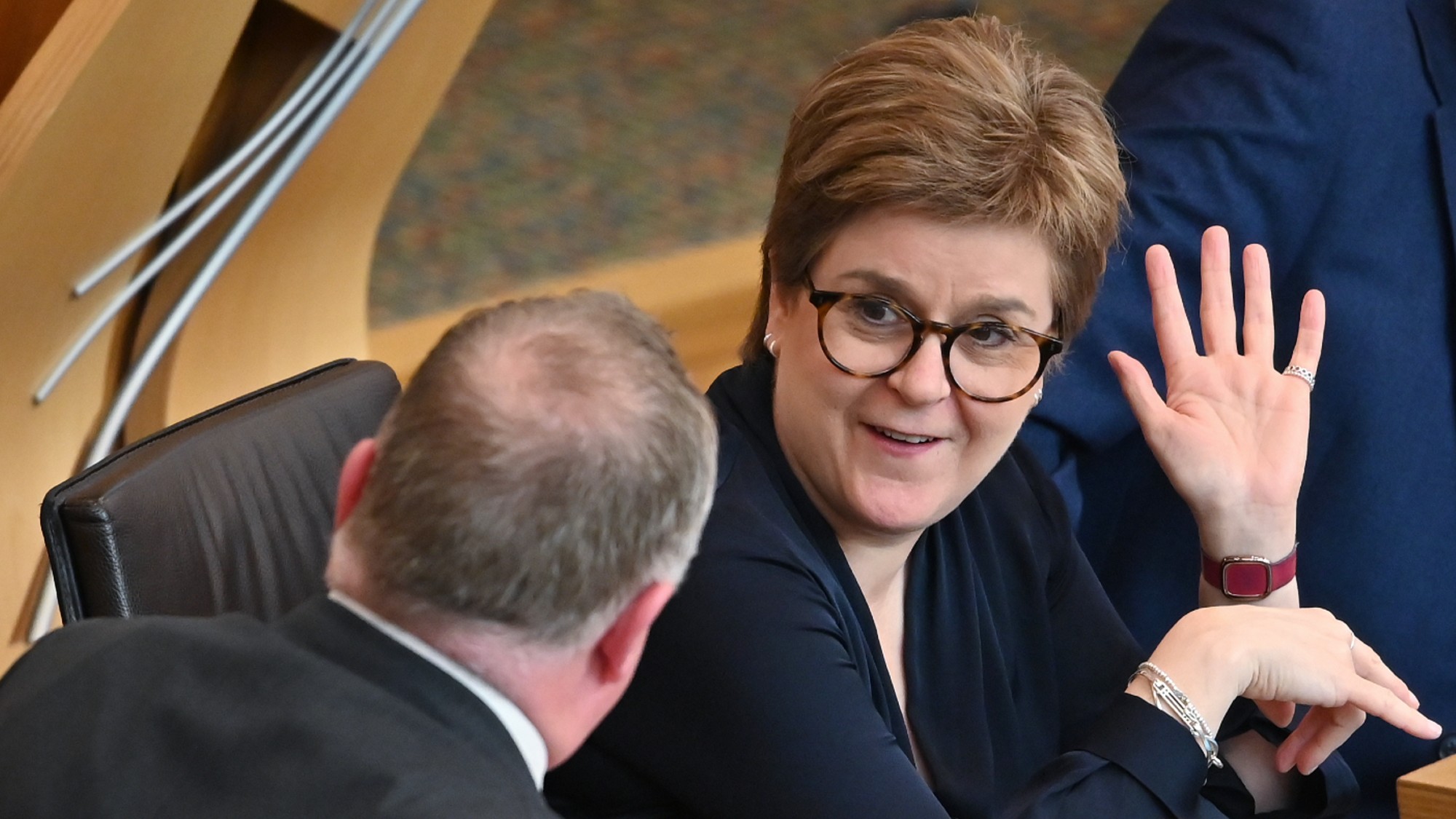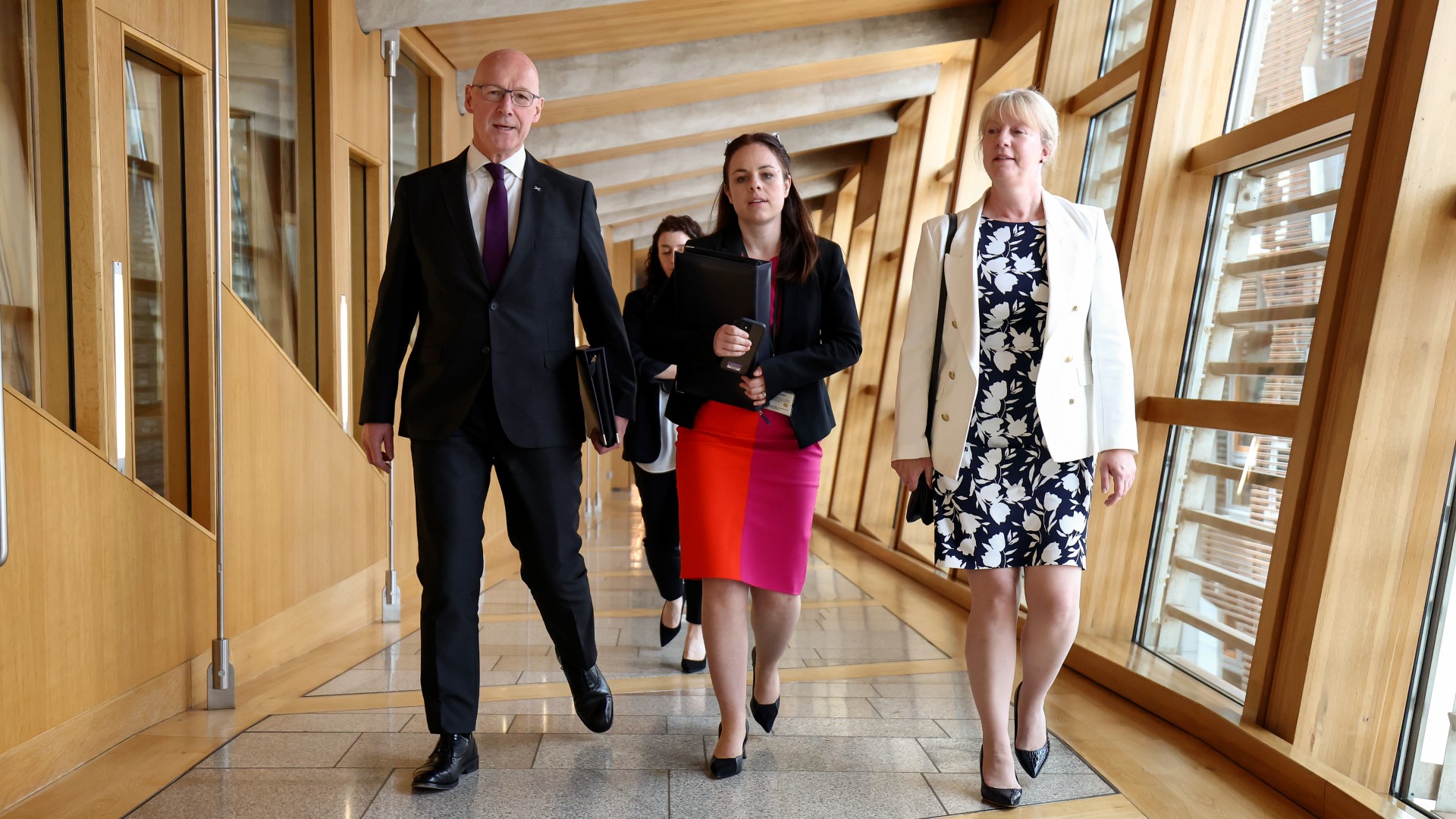The pros and cons of Scottish independence
Support among Scots is at four-year high even as global tensions raise security questions for nationalists

A free daily email with the biggest news stories of the day – and the best features from TheWeek.com
You are now subscribed
Your newsletter sign-up was successful
Scotland is on course to elect a pro-independence majority of MSPs next year, giving fresh hope to those hoping to secure a second independence referendum and ultimately break away from the UK.
Despite the ruling Scottish National Party being mired in controversy, pollsters Survation predicted the SNP would win 55 seats in the Scottish Parliament if the election were held today. Added to 10 seats for the Greens and one for Alba, parties that support independence would have a narrow majority of 66 MSPs out of 129 at Holyrood.
It appears to confirm that, just six months after the SNP's poor showing at the UK general election, "its fortunes are already reviving", said the Financial Times. Support for independence is at 54%, according to recent polling – "the highest level in four years".
The Week
Escape your echo chamber. Get the facts behind the news, plus analysis from multiple perspectives.

Sign up for The Week's Free Newsletters
From our morning news briefing to a weekly Good News Newsletter, get the best of The Week delivered directly to your inbox.
From our morning news briefing to a weekly Good News Newsletter, get the best of The Week delivered directly to your inbox.
Here are the arguments for and against an independent Scotland.
Pro: rejoin the European Union
In the 2016 Brexit referendum, 62% of Scottish voters called for the UK to remain in the European Union, compared to England’s 46.6% of Remain voters.
In the years since, "attitudes towards Brexit have become deeply intertwined with where people stand on Scotland's constitutional status", said the National Centre for Social Research.
Analysis of data from the Scottish Social Attitudes survey and the Scottish Centre for Social Research shows that "on most issues, voters are more likely to think that Scotland would be better off inside the EU but outside the UK, than inside the UK but outside the EU".
A free daily email with the biggest news stories of the day – and the best features from TheWeek.com
As an independent country, Scotland could make a bid to rejoin the EU as a member state once a separation agreement was settled with England. The country could then begin to negotiate its access agreement, looking to benefit from access to the EU single market, as well as the free movement of labour, goods, services and capital.
But "political support around the EU table" could pose a challenge, said Politico. Spain, for example, "has professed opposition to Scottish membership due to its possible implications for Catalonia", with concerns that other separatist movements across Europe could follow Scotland's lead.
Con: trading problems
"The rest of the UK is by far Scotland's biggest trading partner," said Economics Observatory, a relationship that could be put to the test if Scotland were to opt for independence. In 2021 – the most recent year for which figures are available – the UK accounted for 61% of Scottish exports.
Scotland's sales to the rest of the UK are worth more than three times exports to the EU, "demonstrating the strength and critical importance of the UK Internal Market", said Gov.uk.
This could become more complicated still if the country were to rejoin the EU, thereby "tearing Scotland out of the customs union and single market of the United Kingdom", said The Spectator. Analysis indicates that EU membership "would not offset Scotland's economic losses from increased border costs with the rest of the UK" should a hard trade border be imposed, said the Economics Observatory.
Pro: power over policy
"The loudest arguments made around Scottish independence focus on the issue of self-determination," said Politics.co.uk.
While it enjoys some autonomy under devolution, a fully independent Scottish government would have control over constitutional matters, health, energy, environmental policies, and immigration. It would also be able to dictate its defence, social security and foreign policies.
In its "Building a New Scotland" reports, the Scottish government has laid out its vision for an independent Scotland. It includes creating its own constitution, introducing a Scottish pound, setting up an independent Scottish central bank and reforming employment law.
Yet "many unionists believe that the nationalist proposition would not stand up to scrutiny from an inquiring electorate during a campaign", said the FT. Sam Taylor, of These Islands, a pro-union group, said that "independence as an abstract and distant concept is much more popular than painful details".
Con: debt and deficit dilemma
Economic policy and growth are "at the heart of debates about the effects of independence on Scotland's public finances", said the Institute of Fiscal Studies (IFS). While it remains in the union, Scotland's budget deficit "is subsumed within the wider UK budget deficit" but "under independence, that would change".
Scotland's net fiscal balance showed a deficit of £22.7 billion in 2023-24 – or 10.4% of GDP. By comparison, the deficit for the UK as a whole was 4.5% of GDP.
In August last year, Scottish Finance Secretary Shona Robison said the deficit was a "reflection of UK government choices" but Westminster's Scotland Office said the figures proved the "collective economic strength" of the UK.
The Scottish government's expenditure and revenue figures show that people in Scotland benefit from £2,417 more per head of additional spending than the UK average, as a result of the redistribution of wealth throughout the UK – known as the Barnett Formula.
Chancellor Rachel Reeves' "record funding settlement for Scotland has allowed the SNP to spray cash into higher benefit payments, the NHS and housing", boosting its standing among Scots, said the FT.
Pro: Vote left, get right
"In terms of political identity, Scotland has traditionally sat further left than England on the political spectrum," said Politics.co.uk.
Despite the large number of powers now held by the Scottish Parliament, the SNP has enjoyed electoral success over the past decades by emphasising the benefits of being free from Conservative governments in Westminster.
While the return of Labour should usher in a period of greater ideological alignment between Westminster and Holyrood, the rise of Reform UK will likely be utilised by progressive nationalists to warn voters that Scotland could one day come under the control of a far-right government led by Nigel Farage.
Con: position on world stage
At least in the short term, Scotland would lose its access to transnational organisations including the global trade division at the UN, the G7 and Nato, which is currently granted through its union with the rest of the UK. The country would need to apply for independent membership of these organisations.
Without representation at these organisations, Scotland could lose its ability to have its voice heard on global issues including climate change and international peacekeeping.
This has taken on a "renewed importance" as the global security environment "deteriorates" and Europe is ramping up defence spending, said The Herald.
The Scottish independence movement has long been "anti-nuclear" – both in terms of weapons and power – said The New Statesman, "yet these are areas that will be prominent in the national discussion as Europe rearms against the Russian threat in the face of US withdrawal".
In a "blow" to Scottish independence, the Scottish Daily Express reported new polling that found most Scots believe that they are more secure and have more influence as part of the UK, and also want to retain the nuclear deterrent.
-
 Political cartoons for February 12
Political cartoons for February 12Cartoons Thursday's political cartoons include a Pam Bondi performance, Ghislaine Maxwell on tour, and ICE detention facilities
-
 Arcadia: Tom Stoppard’s ‘masterpiece’ makes a ‘triumphant’ return
Arcadia: Tom Stoppard’s ‘masterpiece’ makes a ‘triumphant’ returnThe Week Recommends Carrie Cracknell’s revival at the Old Vic ‘grips like a thriller’
-
 My Father’s Shadow: a ‘magically nimble’ film
My Father’s Shadow: a ‘magically nimble’ filmThe Week Recommends Akinola Davies Jr’s touching and ‘tender’ tale of two brothers in 1990s Nigeria
-
 ‘It’s hard not to feel for the distillers’
‘It’s hard not to feel for the distillers’Instant Opinion Opinion, comment and editorials of the day
-
 Taking the low road: why the SNP is still standing strong
Taking the low road: why the SNP is still standing strongTalking Point Party is on track for a fifth consecutive victory in May’s Holyrood election, despite controversies and plummeting support
-
 Nicola Sturgeon's memoir: making the personal political
Nicola Sturgeon's memoir: making the personal politicalTalking Point Former Scottish first minister attempts to set record straight in 'Frankly' but does she leave more questions than answers?
-
 'Vance stands at a crossroads'
'Vance stands at a crossroads'Instant Opinion Opinion, comment and editorials of the day
-
 Alex Salmond: charismatic politician who nearly broke up the Union
Alex Salmond: charismatic politician who nearly broke up the UnionIn the Spotlight Remembering the former First Minister who 'normalised' the cause of Scottish independence
-
 The SNP: a lacklustre manifesto?
The SNP: a lacklustre manifesto?Talking Point Voters 'getting weary' of familiar fare from Scottish National Party
-
 General election manifestos: how the main parties compare
General election manifestos: how the main parties compareIn depth Labour and the Tories 'leave voters guessing over policy on tax and spending'
-
 Who will win the battle to become Westminster's 'third party'?
Who will win the battle to become Westminster's 'third party'?Today's Big Question YouGov modelling suggests the Liberal Democrats will win many more than the 11 seats they managed in 2019